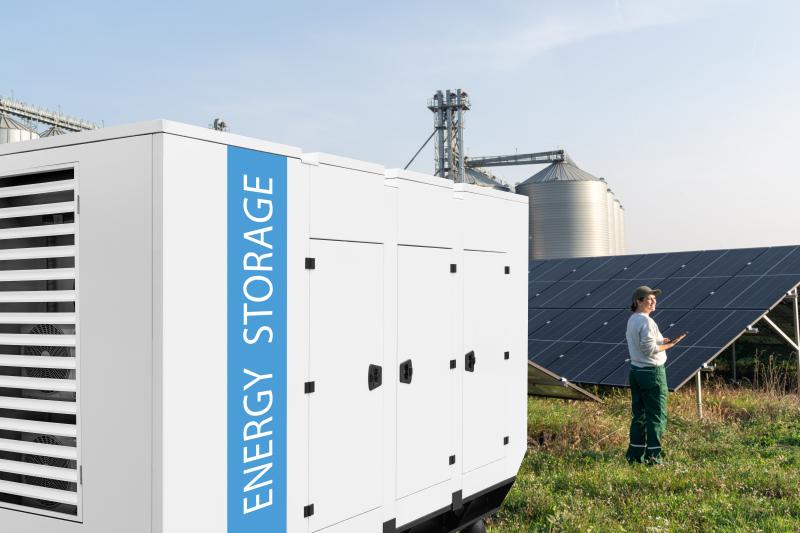Grid scale Battery energy storage systems (BESS)
What is BESS
Grid scale BESS installations are typically installations of 1 megawatt or larger, which store electricity and release it when needed. Installations of grid scale BESS are taking place both in this country and internationally. In the UK national planning for renewable and low carbon energy is required to support green energy initiatives and the government have issued guidance on planning for renewable and low carbon energy.
In order to install a BESS site, planning permission or a National Infrastructure Planning via a Development Consent Order, must be obtained.
Planning
It is important to remember that Local Authorities are not required to consult KFRS as part of the planning process. KFRS therefore has no authority to approve or decline planning permission for grid scale BESS or solar sites.
This decision, in the majority of cases, lies with the Local Authority, or National Infrastructure Planning where a BESS site may be considered nationally significant infrastructure, in which case a Development Consent Order will be needed.
However, the National Fire Chiefs Council encourages applicants and the local planning authority to consult and engage with us early on and to continue to do so throughout the planning process. This enables us to identify site specific risks and meet our legal obligations to 'make provision for the purpose of extinguishing fires ... and protecting life and property in the event of fires...' (Fire and Rescue Service Act 2004, section 7).
Guidance for BESS
When considering BESS, all fire and rescue services (FRS) should primarily follow the National Fire Chiefs Council (NFCC) guidance 'Grid Scale Battery Energy Storage System Planning - Guidance for FRS', which gives recommendations on Grid Scale BESS sites during the design and planning stage. However, we recognise that additional internal design codes and industry best practise can be used to support the fire safety/design of a BESS site.
The NFCC Guidance is 'based upon a range of supporting materials including academic research, national and international standards, case studies, and industry guidance'. It has the 'safety of the public and emergency responders in mind' and 'is based on trying to help reduce the risk as far as reasonably practicable'. It relates specifically to grid scale (typically 1MW or larger) BESS in open air environments, using lithium-ion batteries.
While this guidance is intended for FRS use, its contents will be informative for designers, owners and operators of BESS installations, as well as interested members of the public. It considers amongst other things, system design, construction and testing, suppression systems, emergency plans, and more. A revised edition of this guidance is expected in 2025.
Where a BESS site includes permanent buildings, there will be additional requirements. You can find further information about this in our 'For designers, applicants and planners' section.
Safety of BESS
The UK Government has published health and safety guidance for grid scale electrical energy storage systems. This guidance provides applicants/operators of grid scale BESS sites with a clearer understanding of existing health and safety standards and industry best practices, throughout the life cycle of the site.
Where permanent occupied building(s) are proposed on the BESS site (for example a control room) KFRS would also expect to receive plans and documentation from a Building Control Approver (BCA) following the planning approval. Please see our Applicants, designers and planners section for further information.
Other helpful information relating to the safety of BESS can be found in the Department for Energy Security and Net Zero guidance (pub. 18 April 2024) 'Health and safety in grid scale electrical energy storage systems.
The UK Health and Safety Executive also provide guidance relating to Grid Scale Battery Energy Storage Systems.
